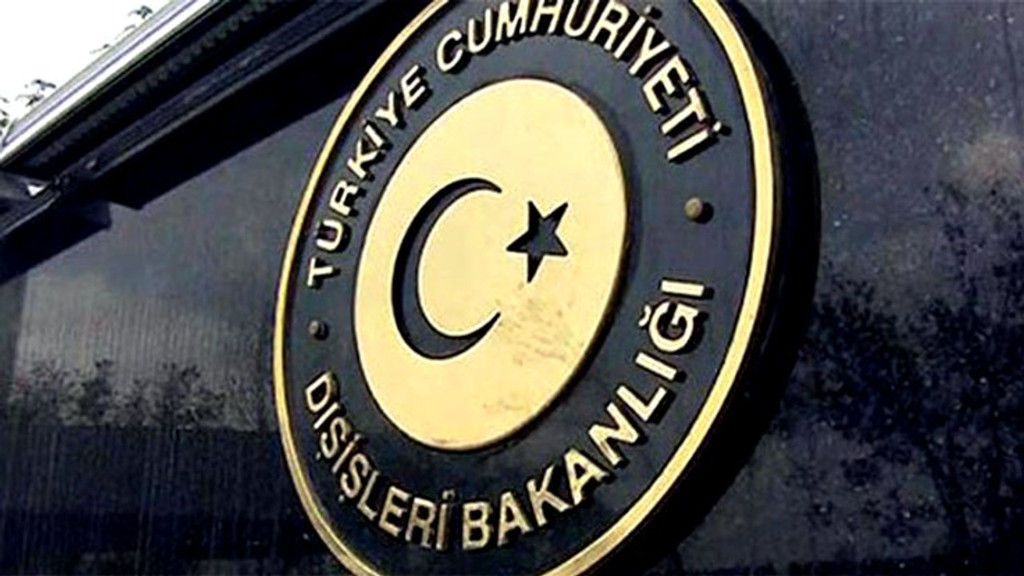Turkey labeled people protesting a racist attack on Kurdish families returning to their homes after Nevruz celebrations on Sunday as militants of the outlawed Kurdistan Workers’ Party (PKK), which is designated as a terrorist organization by Turkey and much of the international community.
Tensions have escalated since Sunday in Belgium and Germany as Kurds riot in protest of the racist attack, while Turks do the same, believing they are protesting against the PKK, which often deteriorates into a hunt for Kurds in the streets of Belgian cities, leading to a series of violent clashes and numerous injuries.
On Sunday, after Nevruz celebrations in Belgium, a Kurdish family was attacked by a group of nationalist Turks outraged by the presence of Kurdish symbols in a predominantly Turkish neighborhood. The attackers, armed with machetes and guns, attempted to storm the Kurdish family’s house in Heusden-Zolder, resulting in at least six Kurds being hospitalized, one in serious condition, as violence necessitated police intervention for protection of the 40 Kurds besieged in the house.
Regarding the Attacks by PKK Militants Against Turkish Citizens Living in Belgium https://t.co/LmrGJ7KhGU pic.twitter.com/p5P8EAzPZv
— Turkish MFA (@MFATurkiye) March 26, 2024
The Turkish Foreign Ministry published statements on Tuesday and Wednesday about the incidents in Europe.
In Tuesday’s statement, Kurds who protested the ultranationalist attack and opposed the subsequent search by people waving the Turkish flag and giving the “wolf” salute, a gesture of the ultranationalist Grey Wolves, were described as “PKK militants.”
The Grey Wolves is considered the paramilitary wing of Turkey’s far-right Nationalist Movement Party (MHP) and is banned in several countries.
“PKK militants gathered in Leuven, Belgium, carried out attacks targeting Turkish citizens living in the cities of Heusden-Zolder and Hauthalen. No lives were lost, but some of our citizens were injured,” the Turkish Foreign Ministry said.
President Recep Tayyip Erdoğan contacted 16-year-old Efe Tapmaz, one of the Turkish citizens injured in the riots, by phone to offer his well-wishes, claiming that he was injured by PKK sympathizers. Erdoğan said that his chief foreign policy and security adviser, Ambassador Akif Çağatay Kılıç, would follow the case closely and condemned the protesters as “immoral, heinous and despicable.”
On Tuesday protesters threw bricks at the Turkish Consulate General in Hannover, Germany, which prompted the Turkish government to immediately label the protesters as “supporters of the PKK.”
Regarding the Attack on the Turkish Consulate General in Hannover by Supporters of the PKK Terrorist Organisation https://t.co/WtbTAPm0bI pic.twitter.com/zWutgb7yyy
— Turkish MFA (@MFATurkiye) March 27, 2024
“On the night of 26 March, supporters of the PKK terrorist organisation attacked the entrance of the Consulate General of the Republic of Türkiye in Hannover,” the Turkish Foreign Ministry said in the statement.
It is common for Kurds in Turkey who are politically active in the Kurdish struggle for recognition to face terrorism charges due to their alleged links to the PKK.
Rights groups and international bodies routinely criticize Turkey for using its broad and vague anti-terror legislation to crack down on dissent.
The Democratic Alliance for Diversity and Awakening (DAVA), a new political association in Germany with alleged links to Erdoğan and his Justice and Development Party (AKP), has also entered the discourse.
A press release by DAVA condemned the violence and put the blame on “PKK symphatizers.”
Was für eine schräge Täter-Opfer-Umkehr! Kein Wort zu dem Versuch Kurd*innen anzuzünden. Kein Wort zu den Gewaltübergriffen. Die #DAVA stachelt weiter an und macht Kurd*innen zur Zielscheibe. Es braucht eine große Solidarität mit den kurdischen Community in Europa! pic.twitter.com/qS6oqQwmuD
— Cansu Özdemir (@CansuOezdemir) March 26, 2024
The association has previously denied any connection to Erdoğan and his AKP and has positioned itself as representing a broader population group, including Turkish and other minorities in Germany. However, critics have raised concerns that DAVA has the potential to further fuel division and that it is linked to Erdoğan’s influence abroad.
An overwhelming majority of Germany and Belgium’s Turkish communities voted for Erdoğan and his AKP in the May general election.
Belgian Prime Minister Alexander De Croo called for calm on Wednesday, according to a report by Agence France-Presse.
“We are asking everyone to calm down, stop the provocations and continue living together [in harmony] as we have done for decades in our country,” De Croo was quoted as saying.
“Let’s stop … these demonstrations of support for organizations classified as terrorist,” he told reporters, referring to the PKK.
The public prosecutor’s offices in Limburg and Liege confirmed to AFP that they were investigating the violent incidents but would not provide more information.
Turkish Foreign Minister Hakan Fidan spoke to his Belgian counterpart, Hadja Lahbib, on Sunday night after the protests, his ministry said this week.
De Croo said Belgium was “following this closely because there are other key moments in the coming days,” referring to local elections in Turkey on March 31.

